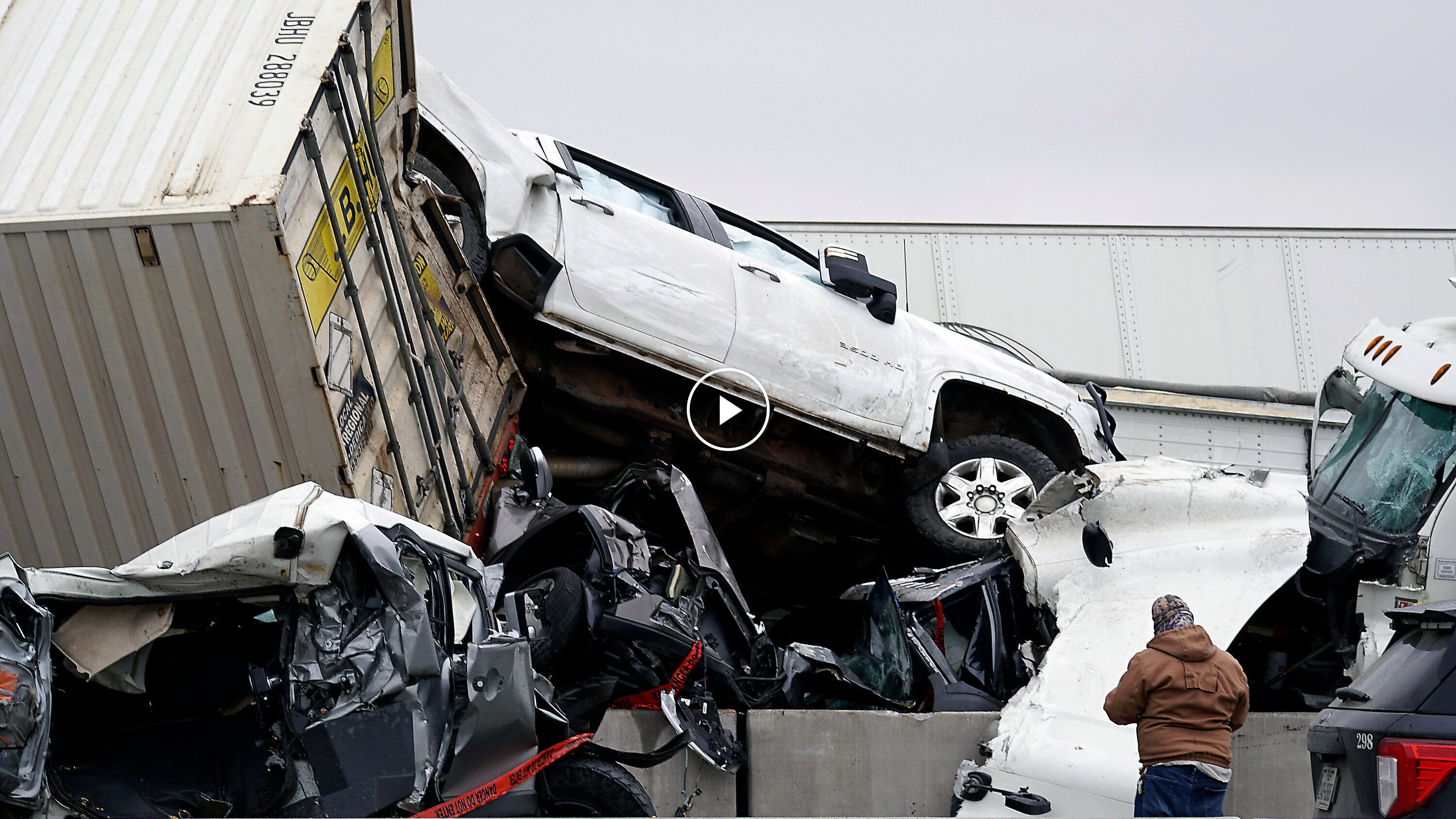There are two kinds of child in this world. The ones who wander off and the ones who don’t. If you’ve got a child that wanders off, you will be sympathetic that Zara and Mike Tindall attach an AirTag to their eldest daughter, Mia. Your child probably rattles with AirTags. In their shoe, in their bag, in their pocket, round their neck …
I’ve got one of each type of child. In a crowd my son, Sam, who is 11, will trail along beside or behind you. Turn round and there he is. My daughter Kitty, who is 13, has not historically been so reliable. She might be there, sure, but she also might be 100 feet away, having seen a “crazy pattern” in a paving stone, or found a frog, or just be aimlessly following some other adult who has the same colour backpack as me. It adds a little extra thrill to navigating airports, let me tell you.
We once lost Kitty for ten full minutes at an adventure playground when she was four, when I foolishly let her out of my sight for eight seconds. The longest ten minutes of my life. After that heart-stopping incident each child wore a bracelet with my mobile number on it, although Kitty was such a wanderer that I just flat out avoided crowded or chaotic places. Burghley Horse Trials would have been an absolute no.
What I ideally needed was the clock that Mrs Weasley from Harry Potter has in her kitchen. The clock features hands that represent not time but each family member, and the face is labelled “Home”, “Quidditch”, “In Transit”, “Mortal Peril” and so on.
Kitty is less dreamy these days. But now both children are at secondary school it is handy for practical, rather than security, reasons to know where they are — so both schoolbags are tagged.
“Bye!” I say in the morning. “Love you and don’t forget, I’m watching your every move!”
I have to do this with a tag as my children don’t have smartphones. This has been their choice, and there are many positives to it, but neither child is capable of using their Nokia in a helpful way. Text me back? Yeah, right. Their phone would have to be on. And they’d have to check it. Then they would have to summon the energy to text back, “K”. None of this is a dead cert.
But AirTags aren’t a perfect solution. The Smartphone Free Childhood movement is commendable and important, but a perfectly legitimate reason for parents to give their child a smartphone is because it gives a much more accurate location than an AirTag.
An AirTag has to “ping” off other iPhones and then relay that data to the “Find My” app on your phone in order to triangulate a location. My children’s AirTags often give wildly inaccurate readings, sometimes stubbornly saying, “Last seen at 0812,” when it’s 1525, or showing Sam’s match coach as still in Hendon when in reality he arrived back at school ten minutes ago.
If you are neurotic — hello! — this hit-and-miss stuff can freak you out for no good reason. Child abduction by strangers is rare but obviously that’s where my mind goes if an AirTag isn’t where it is supposed to be. At other times, it’s just annoying. Is she back from the school trip yet or not?
I know that tracking smartphones is more accurate than this because when I want to find my husband — note, please, that I said “find my”, not “spy on” — it will give me an exact location in real time. Sometimes I watch on my phone screen as his pulsating avatar walks up our street and into our house.
He insists that this is creepy and also an invasion of his privacy, and I’m sure he’s right, but it’s the closest thing I’ve got to Mrs Weasley’s magic clock. If I was ever to force a smartphone on both of my children, this would be why.
The Tindalls' AirTag Solution
The family of five were at the Burghley Horse Trials in Lincolnshire on Saturday to watch Mrs Tindall competing. The gadgets, launched in 2021, are designed to help owners keep track of valuables such as phones, keys and bags, but parents increasingly use them to keep tabs on their children, particularly those too young to have mobile phones.
The Controversy Around AirTags
From naughty children, to cheating partners and even elderly parents with dementia, AirTags are turning into a human tracking device - and not just for personal objects.
The gadget was originally designed to act as a key finder, but their use as a human tracking device recently came into the spotlight after Mike Tindall was seen clipping it to his daughter Mia, 10.
The England rugby ace was seen enjoying a day out with his daughter, who is 22nd in line to the throne, at a horse show with the £35 Apple product pinned to her shorts.
Now people are sharing their own tales of using them as tracking devices, including worried parents who say they are doing it to give them 'a little more assurance' about their child's safety.
One mother who posted a video to TikTok of her attaching an AirTag to her daughters shorts said: 'I’m not a perfect parent and toddlers have a mind of their own. So, I make an effort to keep up with my kids no matter what! We all know that anything can happen anywhere. So, this gives me a little more assurance about my kids’ safety, especially in super crowded places like festivals and airports. I tuck it in for privacy and so that no one will see it to remove it.'
Another, who attached one to her baby's ankle, said that it 'relieves so much anxiety' on trips to places like Disney Land.
And even spouses have revealed how they are using the gadget to 'know exactly where they are at all times', including TikToker's who sowed them into their husband's shoes and hid them in their boyfriend's bags.
Another social media user joked it was a 'cool hack' to keep your husband safe, before hiding them in his sneaker pocket because 'you never know what might happen in a bar, especially late a night'.
Tutorials of 'how to track your man' have also been posted online, receiving thousands of views.
Tracking without Consent
BACP registered Counsellor, Georgina Sturmer, told MailOnline: 'The rise in technology and social media has been accompanied by a sense that we are used to the concept of tracking. Of tracking other people, and of being tracked ourselves. This can give us a sense of safety and security. It also offers a practical, logistical advantage - knowing what time to put the dinner on, for example.
'But when this technology is used without or knowledge, or to intrude on our privacy, it adds a worrying edge. It can lead to suspicion, control and a feeling that we are losing our individual freedom.'
Legal Ramifications
Legal experts - unsurprisingly - say tracking loved ones with AirTags without their knowledge can be seen as 'a breach of privacy rights'.
Mike Schmidt, an attorney from Schmidt & Clark LLP, told MailOnline: 'All parties being tracked need to be informed and to consent to the tracking.
'This consent should be explicit, not assumed, and documented to safeguard against potential legal disputes.
'In some cases, not obtaining proper consent can lead to accusations of stalking or harassment, which can have serious legal consequences.'
Mr Schmidt continued: 'The intent behind using the tracking device is a huge factor. If the primary goal is to ensure safety—such as keeping track of a child’s location for safety reasons rather than monitoring their every move—this needs to be clearly communicated.
'Transparency about the reasons for tracking helps to avoid any potential misunderstandings or conflicts.
'Parents should discuss their reasons openly with their children, addressing any concerns they might have.
'This not only builds trust but also helps in ensuring that the use of such technology is seen as a protective measure rather than a tool for control.'
How to Disable AirTag Tracking
The easiest way to disable the AirTag and become untraceable is by removing the battery which means the device can't send its location back to the owner.
Another way of vanishing from the map is turning off the 'Find My network' in phone settings and getting friends or the people you are with to do the same as the AirTag will not be able to ping the location off of any of their phones.
You can wrap the AirTag in tinfoil which can block the signal and disable the tracking until it is unwrapped.
Is It Appropriate to Track Older Children?
Parents are increasingly using Apple AirTags to track their children, with companies selling bracelets and shoe soles to keep the £28 tracking device attached to them.
It seems fair and sometimes necessary to attach an AirTag to a younger child - like Mike Tindall who clipped one to his 10-year-old daughter Mia's shorts at the Burghley Horse Trials.
However, some parents have been using them to unknowingly track their older children.
One girl posted a video on TikTok with the caption 'Wondering why my parents always know where I am even though I didn't tell them where I was going' showing her finding an AirTag hidden in her car by her parents.
Forcing an older child or a teenager to carry an AirTag can actually make them become sneaky and look for ways to get around the technology, experts say.
The Importance of Trust and Communication
Chartered Security Professional, James Bore, told MailOnline: 'The moment your children want to have autonomy, that's when you have to shift into having more of a discussion with them.
'Anything where it's hidden or where it's just enforced, isn't going to work.
'If you do that, you are going to create resentment. You are going to create hostility. You're going to get the sneakiness. You're going to get resistance to communication.
'And the most important thing, if you really want to protect a teenager, is that they feel that they can have a conversation.
'They can speak about things that happened. They can speak about things that worry them without that fear based over protectiveness.'
Parenting expert, Chioma Fanawopo, explained how tracking an older child or teenager with an AirTag can break down trust between them and the parent, no matter how pure the intentions are.
She said: 'Teenagers are naturally pushing for independence and privacy, and tracking, no matter how well intentioned, can feel stifling. Even if parents are emotionally aware and explain their reasoning, teens might still feel they need to assert their autonomy, which can lead them to find ways around the AirTag. They might see the tracking as a lack of faith in their judgement, which can damage the relationship and lead to resentment or defiance.'
Ms Fanawopo suggests reducing tracking around age 16 as 'for teens, communication and trust-building become more critical than surveillance'.
Relationship and parenting expert, Sylvia Smith, from marriage.com, said: 'Kids these days are enterprising and computer-literate, so it may not be that big of a deal for them in trying to figure out ways of deactivating tracking or not being monitored. This would create an unhealthy dynamic where the need to outsmart their parents becomes necessary rather than simply communicating openly. The key here is finding a balance between tracking technology and trust, with clear boundaries.'
Exploring the Underlying Family Dynamics
Licensed Parent-Child Interaction Therapist (PCIT), Jessi Gholami, from Start Here Parents!, thinks the reaction to the introduction of AirTag tracking for children and teens can highlight deeper issues within the family.
She said: 'What I find interesting is how these technologies tend to amplify already-existing family dynamics and trust issues. If there's a strong bedrock of mutual understanding and respect, adding AirTag-style location sharing could potentially be a non-issue, done with full enthusiastic consent. But if you're dealing with a high-conflict relationship marred by control battles, hostility or trust deficits, that same tech could easily exacerbate tensions.
'These technologies almost become sort of a modern metaphor for the underlying family processes at play. For parents grappling with those thundering developmental pushes for adolescent autonomy, an AirTag could easily be perceived as a hostile power move - a total violation of that young person's blossoming personal agency. But in a more cohesive family system, that same device might be requested as a routine safety checking, with no relational fallout whatsoever.
'I suppose you could say these tech quandaries end up mirroring the deeper psychological struggles around separation, trust, and loosening our protective grip as children individuate. If you think about it, an AirTag dilemma might ultimately shine a revealing light on the relational coping skills and family dynamics that need some therapeutic attention and reframing.'
Ms Gholami suggests that families engage in some serious self-reflection before implementing AirTag tracking.
She said they should 'explore the emotional undercurrents driving those tracking desires or privacy concerns with an open mind because oftentimes, those dicey tech arguments are just proxies for much richer conversations we need to have about evolving roles, hopes, and personal boundaries.'
Apple's Safety Features
Apple explicitly state on their website that the 'AirTag is designed to discourage unwanted tracking' and included a feature that sends a notification to your phone if if one is travelling with you.
If you still can't find the AirTag, it will play a chirping sound to let you know where it is.
The website says: 'Of course, if you happen to be with a friend who has an AirTag, or on a train with other passengers who have AirTag, don’t worry. These alerts are triggered only when an AirTag is separated from its owner.'

















